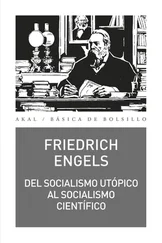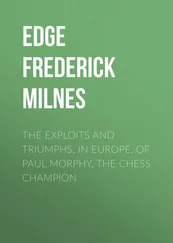Friedrich Engels - Socialism, Utopian and Scientific
Здесь есть возможность читать онлайн «Friedrich Engels - Socialism, Utopian and Scientific» — ознакомительный отрывок электронной книги совершенно бесплатно, а после прочтения отрывка купить полную версию. В некоторых случаях можно слушать аудио, скачать через торрент в формате fb2 и присутствует краткое содержание. Жанр: История, foreign_antique, foreign_prose, на английском языке. Описание произведения, (предисловие) а так же отзывы посетителей доступны на портале библиотеки ЛибКат.
- Название:Socialism, Utopian and Scientific
- Автор:
- Жанр:
- Год:неизвестен
- ISBN:нет данных
- Рейтинг книги:5 / 5. Голосов: 1
-
Избранное:Добавить в избранное
- Отзывы:
-
Ваша оценка:
- 100
- 1
- 2
- 3
- 4
- 5
Socialism, Utopian and Scientific: краткое содержание, описание и аннотация
Предлагаем к чтению аннотацию, описание, краткое содержание или предисловие (зависит от того, что написал сам автор книги «Socialism, Utopian and Scientific»). Если вы не нашли необходимую информацию о книге — напишите в комментариях, мы постараемся отыскать её.
Socialism, Utopian and Scientific — читать онлайн ознакомительный отрывок
Ниже представлен текст книги, разбитый по страницам. Система сохранения места последней прочитанной страницы, позволяет с удобством читать онлайн бесплатно книгу «Socialism, Utopian and Scientific», без необходимости каждый раз заново искать на чём Вы остановились. Поставьте закладку, и сможете в любой момент перейти на страницу, на которой закончили чтение.
Интервал:
Закладка:
Again, our agnostic admits that all our knowledge is based upon the information imparted to us by our senses. But, he adds, how do we know that our senses give us correct representations of the objects we perceive through them? And he proceeds to inform us that, whenever he speaks of objects or their qualities, he does in reality not mean these objects and qualities, of which he cannot know anything for certain, but merely the impressions which they have produced on his senses. Now, this line of reasoning seems undoubtedly hard to beat by mere argumentation. But before there was argumentation, there was action. Im Anfang war die That. And human action had solved the difficulty long before human ingenuity invented it. The proof of the pudding is in the eating. From the moment we turn to our own use these objects, according to the qualities we perceive in them, we put to an infallible test the correctness or otherwise of our sense-perceptions. If these perceptions have been wrong, then our estimate of the use to which an object can be turned must also be wrong, and our attempt must fail. But if we succeed in accomplishing our aim, if we find that the object does agree with our idea of it, and does answer the purpose we intended it for, then that is positive proof that our perceptions of it and of its qualities, so far , agree with reality outside ourselves. And whenever we find ourselves face to face with a failure, then we generally are not long in making out the cause that made us fail; we find that the perception upon which we acted was either incomplete and superficial, or combined with the results of other perceptions in a way not warranted by them – what we call defective reasoning. So long as we take care to train and to use our senses properly, and to keep our action within the limits prescribed by perceptions properly made and properly used, so long we shall find that the result of our action proves the conformity of our perceptions with the objective nature of the things perceived. Not in one single instance, so far, have we been led to the conclusion that our sense-perceptions, scientifically controlled, induce in our minds ideas respecting the outer world that are, by their very nature, at variance with reality, or that there is an inherent incompatibility between the outer world and our sense-perceptions of it.
But then come the Neo-Kantian agnostics and say: We may correctly perceive the qualities of a thing, but we cannot by any sensible or mental process grasp the thing in itself. This "thing in itself" is beyond our ken. To this Hegel, long since, has replied: If you know all the qualities of a thing, you know the thing itself; nothing remains but the fact that the said thing exists without us; and when your senses have taught you that fact, you have grasped the last remnant of the thing in itself, Kant's celebrated unknowable Ding an sich . To which it may be added, that in Kant's time our knowledge of natural objects was indeed so fragmentary that he might well suspect, behind the little we knew about each of them, a mysterious "thing in itself." But one after another these ungraspable things have been grasped, analyzed, and, what is more, reproduced by the giant progress of science; and what we can produce, we certainly cannot consider as unknowable. To the chemistry of the first half of this century organic substances were such mysterious objects; now, we learn to build them up one after another from their chemical elements without the aid of organic processes. Modern chemists declare that as soon as the chemical constitution of no matter what body is known, it can be built up from its elements. We are still far from knowing the constitution of the highest organic substances, the albuminous bodies; but there is no reason why we should not, if only after centuries, arrive at that knowledge and, armed with it, produce artificial albumen. But if we arrive at that, we shall at the same time have produced organic life, for life, from its lowest to its highest forms, is but the normal mode of existence of albuminous bodies.
As soon, however, as our agnostic has made these formal mental reservations, he talks and acts as the rank materialist he at bottom is. He may say that, as far as we know, matter and motion, or as it is now called, energy, can neither be created nor destroyed, but that we have no proof of their not having been created at some time or other. But if you try to use this admission against him in any particular case, he will quickly put you out of court. If he admits the possibility of spiritualism in abstracto , he will have none of it in concreto . As far as we know and can know, he will tell you there is no Creator and no Ruler of the universe; as far as we are concerned, matter and energy can neither be created nor annihilated; for us, mind is a mode of energy, a function of the brain; all we know is that the material world is governed by immutable laws, and so forth. Thus, as far as he is a scientific man, as far as he knows anything, he is a materialist; outside his science, in spheres about which he knows nothing, he translates his ignorance into Greek and calls it agnosticism.
At all events, one thing seems clear: even if I was an agnostic, it is evident that I could not describe the conception of history sketched out in this little book, as "historical agnosticism." Religious people would laugh at me, agnostics would indignantly ask, was I going to make fun of them? And thus I hope even British respectability will not be overshocked if I use, in English as well as in so many other languages, the term, "historical materialism," to designate that view of the course of history, which seeks the ultimate cause and the great moving power of all important historic events in the economic development of society, in the changes in the modes of production and exchange, in the consequent division of society into distinct classes, and in the struggles of these classes against one another.
This indulgence will perhaps be accorded to me all the sooner if I show that historical materialism may be of advantage even to British respectability. I have mentioned the fact, that about forty or fifty years ago, any cultivated foreigner settling in England was struck by what he was then bound to consider the religious bigotry and stupidity of the English respectable middle-class. I am now going to prove that the respectable English middle-class of that time was not quite as stupid as it looked to the intelligent foreigner. Its religious leanings can be explained.
When Europe emerged from the Middle Ages, the rising middle-class of the towns constituted its revolutionary element. It had conquered a recognized position within mediæval feudal organization, but this position, also, had become too narrow for its expansive power. The development of the middle-class, the bourgeoisie , became incompatible with the maintenance of the feudal system; the feudal system, therefore, had to fall.
But the great international center of feudalism was the Roman Catholic Church. It united the whole of feudalized Western Europe, in spite of all internal wars, into one grand political system, opposed as much to the schismatic Greeks as to the Mohammedian countries. It surrounded feudal institutions with the halo of divine consecration. It had organized its own hierarchy on the feudal model, and, lastly, it was itself by far the most powerful feudal lord, holding, as it did, fully one-third of the soil of the Catholic world. Before profane feudalism could be successively attacked in each country and in detail, this, its sacred central organization, had to be destroyed.
Moreover, parallel with the rise of the middle-class went on the great revival of science; astronomy, mechanics, physics, anatomy, physiology, were again cultivated. And the bourgeoisie, for the development of its industrial production, required a science which ascertained the physical properties of natural objects and the modes of action of the forces of Nature. Now up to then science had but been the humble handmaid of the Church, had not been allowed to overstep the limits set by faith, and for that reason had been no science at all. Science rebelled against the Church; the bourgeoisie could not do without science, and, therefore, had to join in the rebellion.
Читать дальшеИнтервал:
Закладка:
Похожие книги на «Socialism, Utopian and Scientific»
Представляем Вашему вниманию похожие книги на «Socialism, Utopian and Scientific» списком для выбора. Мы отобрали схожую по названию и смыслу литературу в надежде предоставить читателям больше вариантов отыскать новые, интересные, ещё непрочитанные произведения.
Обсуждение, отзывы о книге «Socialism, Utopian and Scientific» и просто собственные мнения читателей. Оставьте ваши комментарии, напишите, что Вы думаете о произведении, его смысле или главных героях. Укажите что конкретно понравилось, а что нет, и почему Вы так считаете.












